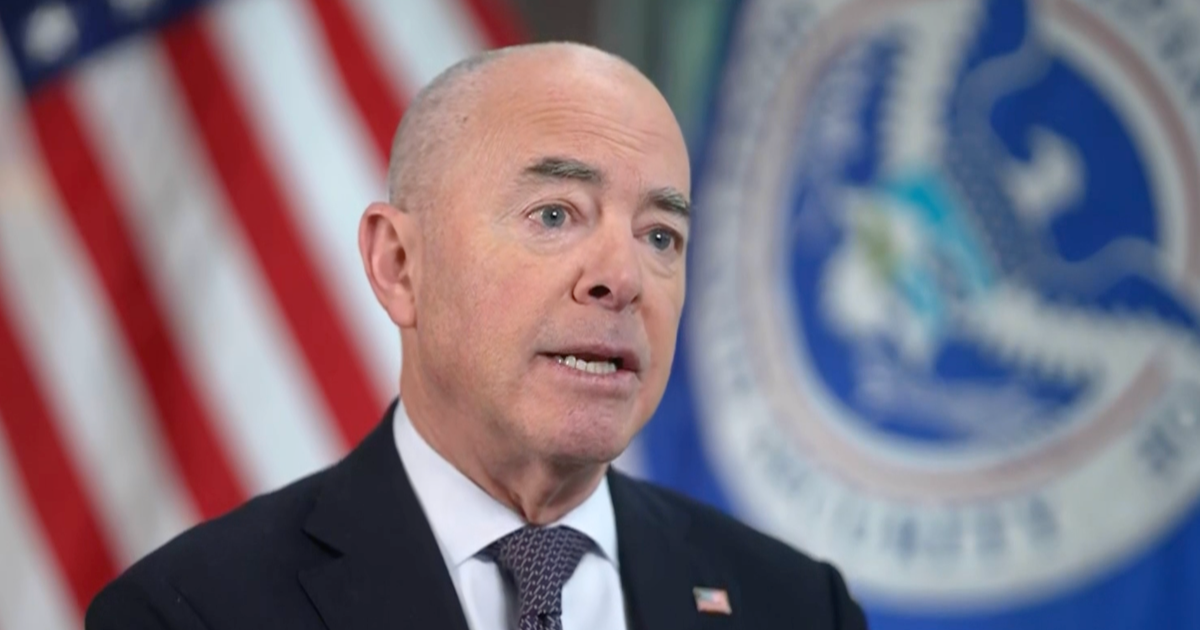CBS News
4 important things seniors should know about gold investing

Getty Images
The economy of recent years has left many Americans looking for new ways to protect and grow their savings. Seniors, in particular, many of whom rely on a tight budget made up of retirement savings and Social Security, need to be particularly careful with where they store their money and where they invest it. While traditional savings vehicles like high-yield savings and certificates of deposit (CD) accounts have proven beneficial in today’s inflationary climate, there are also some investments that many have recently turned to for help.
Gold is one of those investments. Investing in the precious metal hit an 11-year high last September as many sought a hedge against inflation. But gold doesn’t operate like some other investments do and seniors should go into the process clear-eyed and knowledgeable.
To that end, below we’ll break down four important things seniors should know about gold investing.
Ready to get started? Learn how an investment in gold could help you here.
4 important things seniors should know about gold investing
Here are four important things seniors considering investing in gold should understand.
It can help with inflation
A driving force behind gold’s renewed popularity in recent years has been the hedge it can provide against inflation. Unlike other assets that suffer in inflationary periods, gold tends to hold steady and may even rise in price.
Gold is hovering near record highs right now and is projected to increase significantly over the next decade. Compared to the volatility of the stock market, in which big gains and big losses are common, and the inconsistency of real estate, gold is often a smart choice, especially now.
Learn more about how gold can help with inflation here.
It can diversify your portfolio
Gold is a great way to diversify your portfolio to offset the inevitable swings in performance that other assets inherently come with. When those assets underperform, your larger portfolio will be buffered by the consistency of gold, ensuring that your portfolio doesn’t suffer a total loss.
While stocks, bonds and other investments are still worthwhile, diversification is key to long-term financial success and gold can provide that right now.
It’s not a traditional income-producing investment
While gold has major benefits for investors today, one advantage it doesn’t come with is an instant income-producing ability. While you can make money with gold over time, the gains will be tedious and come incrementally.
This isn’t to say that you shouldn’t invest in gold (many seniors can and should), but it’s important to know what an investment in the yellow metal can and cannot result in. Instead, invest with an eye toward inflation buffering and portfolio diversification as mentioned above.
Investing should be limited
As noted, portfolio diversification is vital to financial success and stability. And that means knowing how much to invest in any particular asset to not leave yourself exposed. Most experts recommend limiting an investment in gold to 10% or less of your portfolio but the range between 1% and 10% will primarily be dictated by your investor profile. Seniors with a long-term investing approach may want to be on the higher end of that spectrum while others may want to be on the lower side. Either way, gold should generally be capped at 10% of your portfolio to make room for other asset classes.
Get started with the right gold investment for your goals today.
The bottom line
Seniors looking for some help with their portfolio should strongly consider turning to gold. Gold’s ability to help with inflation and diversification are major advantages right now. That said, seniors need to be smart about their expectations for what gold can produce short-term and they should keep their investing in the precious metal limited so to avoid hindering the growth potential of other assets. By understanding these four important factors about gold investing now seniors can better improve their chances of having the metal improve their financial health now and into the future.
CBS News
Mayorkas warns of “serious” consequences for Homeland Security if government shuts down

Washington — Homeland Security Secretary Alejandro Mayorkas warned Friday that his agency could suffer “serious” consequences if Congress fails to pass legislation funding federal agencies and averting a government shutdown in the next few hours.
In an interview with “Face the Nation with Margaret Brennan,” Mayorkas said many components of the Department of Homeland Security would be affected by a lapse in funding, including the Transportation Security Administration (TSA), FEMA and Border Patrol.
The homeland security chief added that a failure by lawmakers to pass a stopgap spending bill before Saturday would also mean staff at the Countering Weapons of Mass Destruction Office would be redirected to other parts of his department.
“The implications and the consequences are serious, especially when it comes to Homeland Security,” Mayorkas said.
He urged Congress to approve legislation that would keep government agencies operating before midnight, when a short-term extension enacted in September will expire.
House Speaker Mike Johnson unveiled earlier this week a legislative package negotiated with Democrats that would have extended government funding through March 14, provided more than $100 billion in disaster aid for states impacted by extreme weather events, and given members of Congress a pay raise, among other provisions.
But the proposal was swiftly met with pushback from some conservative Republicans, who balked at the size and scope of the 1,550 page deal. Crucially, it was also criticized by billionaire Elon Musk, an ally of President-elect Donald Trump, and then by the incoming president himself.
Trump and Musk torpedoed the package, with Musk taking to X, the social media platform he owns, to lambaste provisions of it. The president-elect further upended negotiations over a funding deal when he called on Republicans to address the debt limit — which is set to be reinstated Jan. 1 — in their plan.
Johnson unveiled a second measure Thursday, which would have funded the government for three months, suspended the nation’s borrowing limit until January 2027 and provided $110 billion in disaster relief. The more tailored legislation, which Trump backed, also included health care provisions, a one-year renewal of the farm bill and funding for rebuilding the Francis Scott Key Bridge in Baltimore, which collapsed in March.
But that package failed to pass the House with the necessary support after it was opposed by most Democrats and more than three dozen Republicans.
That defeat sent Johnson and GOP leaders back to the drawing board, with the prospect of a shutdown rising with each passing hour. Republicans are now discussing voting on three provisions of the package individually, sources familiar with the matter told CBS News: a clean extension of government funding; billions of dollars in disaster aid; and assistance to farmers.
Mayorkas told “Face the Nation” that a shutdown just before the holidays — when tens of millions of Americans are traveling — would mean TSA employees at airports throughout the country would be forced to work without pay. However, they would likely receive backpay after a shutdown ends, as has happened before after previous funding lapses.
“We’re going to have tens of thousands of TSA employees working an incredibly high volume of passenger traffic throughout our airports across the country, and they will be doing so keeping the American public safe without pay,” he said.
The Homeland Security secretary also said those impacted would include U.S. Border Patrol agents stationed along the U.S.-Mexico border.
“There are people in government service who are dedicating their talent and their energy to the well-being of the American people, who rely on their paychecks to make ends meet, and it is the holiday season, after all, but our men and women on the border will be guarding the border of the United States at no pay if funding doesn’t come through,” Mayorkas said.
The $110 billion in disaster assistance that will likely be included in a spending deal includes money for FEMA, which has been responding to the hurricanes that devastated the southeast this fall.
Mayorkas said that inaction by Congress would impact those states hit by the storms, including North Carolina and Florida.
“What FEMA will need to do, another significant impact of the failure to fund the federal government, is they will now need to delay — they’ll put on pause certain contracts, certain projects that are actually repairing communities devastated by extreme weather events, by tornados, by hurricanes, by fires, and that will delay the rebuilding of communities and really delay the ability to deliver for people who have suffered so much,” he said.
Mayorkas said a shutdown occurring over the holidays would force the Department of Homeland Security to “make difficult decisions now to delay projects.”
Lawmakers representing those storm-ravaged states have pushed for disaster relief to be included in any legislative package funding the government.
CBS News
Watch: White House takes questions on looming government shutdown

Watch CBS News
Be the first to know
Get browser notifications for breaking news, live events, and exclusive reporting.
CBS News
What to know about the government shutdown deadline threatening the U.S.

Watch CBS News
Be the first to know
Get browser notifications for breaking news, live events, and exclusive reporting.


